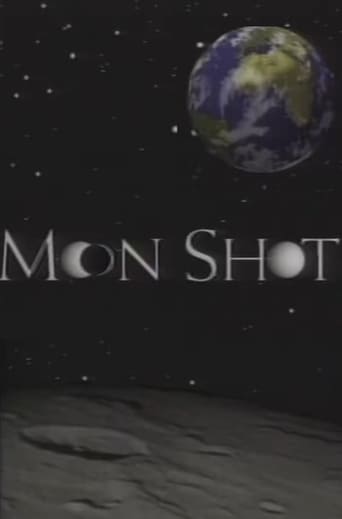

This series is about the race to the moon viewed from the the perspective of the American Space Program from Mercury to Apollo. Retired astronauts, engineers, and program managers reminisced about their involvement in the program which makes this 4 hour program an invaluable documentary of the history of American space exploration.What kind of an era was this when people were able to dream such grand adventure, and actually pull it off ? Sadly space exploration was put on hold due to domestic issues of feeding the poor, but 40 years later, those problem still persists, and we're not officially back on moon for all the years. Makes you wonder if the protest of the poor were just a sour grape to find an easy target to take pot shots at.There's still magic in seeing the giant Saturn V rocket take off, and space crafts making docking maneuvers in space. It could be the best of the movies, but even better. Will we see the spirits of adventure like this in our life time again ? If not, we've lost something valuable to all humanity.
... View MoreWith a lot of great humor. Moon Shot covers the U.S. space program from the Mercury days through Apollo/Soyuz, as told by former astronaut Deke Slayton (voiced by Barry Corbin). The humor comes from anecdotes from several of the original astronauts, including John Glenn, who, talking about the mysterious "fireflies" that appeared during his space mission, said that one of the psychiatrists asked him, "And, what did they SAY, John?" Alan Shepard later said, "Those fireflies weren't fireflies at all....they were the constellation URION (Urine)."Or another example: Frank Borman, talking about his Gemini 12 flight with Jim Lovell, says, "There was a song by Nat King Cole.." And Lovell comes on, and says, " 'Put Your Sweet Lips a Little Closer to The Phone,' by Nat King Cole." They then alternate verses, and Lovell finally says, "And that went on for two weeks. And of course, Frank & I were alone." Or the debate about who would be the first man to step on the moon - Armstrong, or Aldrin. As "Deke," Barry Corbin, put it: "It came down to tradition, and tradition says the commander always goes first. Besides, Neil was closest to the door!"One of the most poignant lines comes from Alan Shepard, when he describes what his father told him after his Apollo 14 mission: "My father said, 'Do you remember when you called us, back in 1959, and said that you were going to be an astronaut'? I said, 'Yessir.' He said, 'Do you remember what I said?' I said, 'Yessir. You were not in favor of it.' And he raised his glass and said...'I was wrong.' And that's all he had to say."This video belongs in the library of anyone who is in any way interested in history and the early U.S. space program.
... View MoreI have been a staunch supporter of the U.S. space program for many years, and when I heard about "Moon Shot" I knew I had to add this video tape to my collection. One thing that struck me as very funny were the comments of some of the principals(John Glenn, Chris Kraft, Alan Shepard, etc). For example, when discussing Deke Slayton's heart problem, in relation to his Apollo-Soyuz mission, Kraft states, "We knew more about Deke Slayton's heart than any man we ever flew, and that goddamned doctor stood up in the meeting and said, 'Well, I know we've said this before, but if he fibrillates on the pad, I'm gonna stop the count.' And I fired that sonuvabitch!"Of course, life for the American space program wasn't all humorous. Three astronauts died in an accident during a training excercise in 1967, and there are many interviews with fellow astronauts and Mission Control members describing how they felt at the loss of their three comrades. There is also a great deal of discussion of the Soviet moon program, and its ultimate failure.Any history fan or space enthusiast will enjoy Moon Shot. It gives one of the most accurate accounts of the early space program, through the eyes of the guys who lived it. I would heartily recommend this video for anyone interested in the space program.
... View MoreBased on the book of the same name, Moon Shot gives a real-life account of NASA's race for the moon by two men who were intimately involved: Deke Slayton and Alan Sheppard.Much of this film is a gathering of the 5 remaining Mercury Astronauts - Al Sheppard, John Glenn, Scott Carpenter, Wally Schirra and Gordo Cooper. They reminisce about the old days and their different perspectives, something you don't get in the book, which is also excellent. Barry Corbin fills in as the voice, but not the image, of Deke Slayton. I think Corbin's part was a nice touch, narrating Deke's contributions to the book. I think it was interesting too that they got Corbin to play a former astronaut when he played former astronaut Maurice Minnifield on Northern Exposure for several years. Maybe intentional, maybe not, but a fine piece of casting. :)If you liked the film, read the book. You won't be disappointed.
... View More